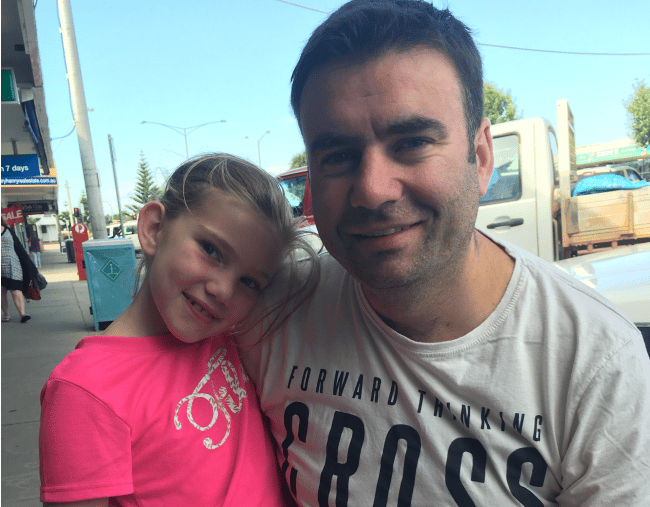Just over eight years ago, we were blessed with the arrival of our first child, Sophia, who was born healthy and full of life.
Like all babies she had the standard newborn heel prick test to check for signs of rare disorders and illnesses. While I wept like a baby, thinking about my little girl being prodded, she hardly even flinched and then it was over.
Three days after bringing Sophia home, I got a phone call from a number I did not know that would change our lives forever. On the other end of the phone was a nurse from the Royal Children’s Hospital in Melbourne who told me that the results of Sophia’s heel prick test were irregular, and would require further testing.



